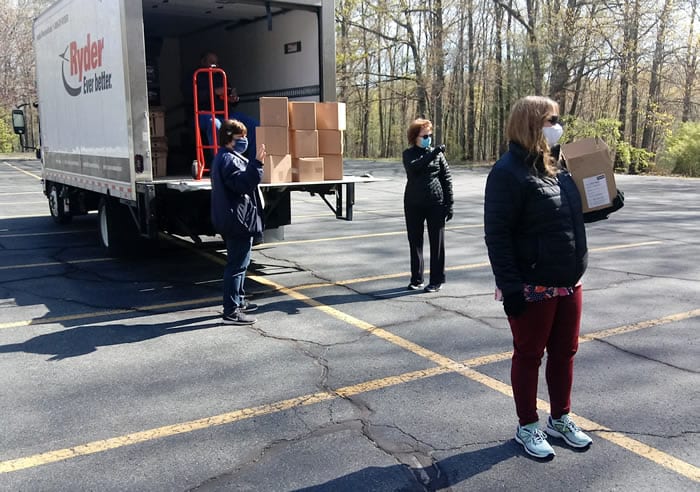May 26, 2020 Community Stories
Safer at Home: LifePath Helps Elders During COVID-19
“I have never worked this hard in my life, and the work has never been so gratifying.”
This is how Barbara Bodzin, executive director of LifePath, describes the past nine weeks of helping elders and people with disabilities stay safe, healthy, and independent during the COVID-19 pandemic.
LifePath, which primarily serves Franklin County, was one of the first recipients of a grant from the COVID-19 Response Fund for the Pioneer Valley, hosted by the Community Foundation. The agency moved quickly to adapt its programs, such as in-home assistance, meal delivery, and social support, to meet the changing needs of its consumers in the safest way possible.
Keeping elderly people and those with disabilities in their homes and out of assisted living, nursing homes, and hospitals, is critical because they are particularly vulnerable to the coronavirus. The Community Foundation’s grant “was a godsend” says Bodzin, because it enabled LifePath to quickly purchase and distribute personal protective equipment to home health aides and personal attendants who spend hours inside the homes of their clients— as well as to the 1,700 clients themselves.
While hospital-based doctors and nurses are rightly called heroes, says Bodzin, the health workers who provide care in homes, out of the public eye, are equally heroes. “They do it purely out of dedication, and they often don’t have a large institution like a hospital to provide the protection they need. So the grant was literally a lifesaver.”

Food insecurity is also a challenge in Franklin County, with scarce transportation and the price of food rising and rising. There’s been a surge in demand for Meals on Wheels. LifePath has used its meal delivery service as a way to check in on consumers and provide them some social time.
“Now we have moved to a smile-and-wave method,” says Bodzin. Drivers place the meal on an outside table or pack the meal in a plastic bag and hang it on the doorknob, knock or ring the doorbell, and immediately step back 10 to 15 feet. When the resident answers the door, the driver says “hello” and indicates where the meal is, making sure the recipient can retrieve the meal before leaving to deliver the next meal.
“The loss of real face-to-face time has been the hardest part for our consumers,” says Bodzin, “and for people with dementia, the social distancing part is really hard to understand.”
The Response Fund grant also enabled LifePath to invest in the technology that helped its operations to go virtual. “In a rural area like ours, you often don’t have easy access to the Internet,” says Bodzin. “In the first weeks of work-at-home, we had staff people working out of their cars, driving around to find wifi. Our technology investments have made that easier.”
The community response to COVID-19 has greatly heartened Bodzin. More than 200 new volunteers have stepped forward during the pandemic, and what’s good in our society is making itself truly visible.
“I can’t express my gratitude enough to the Community Foundation. They had the sensitivity and the insight to give us what our community needs when we needed it.”
